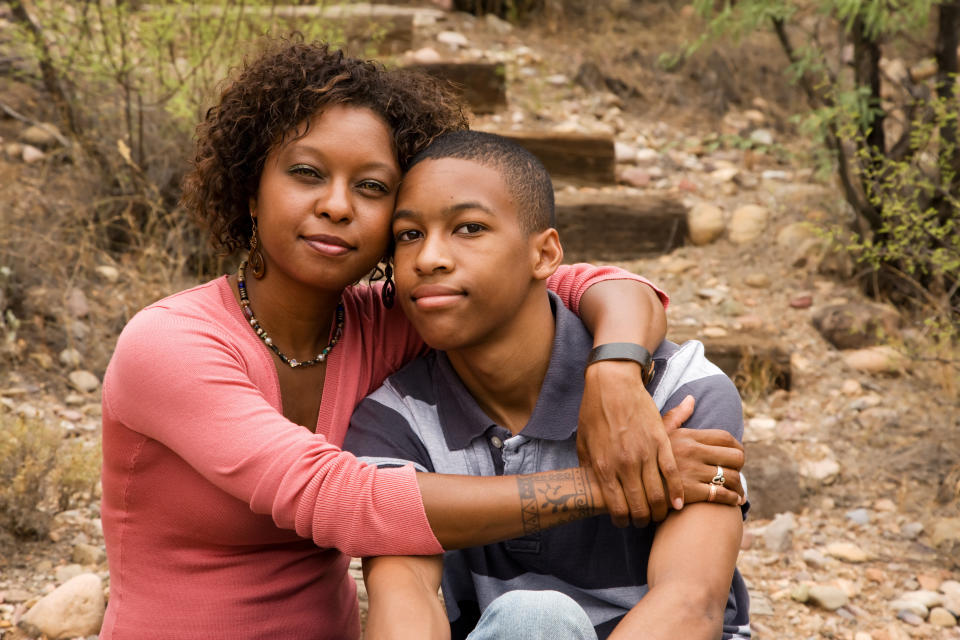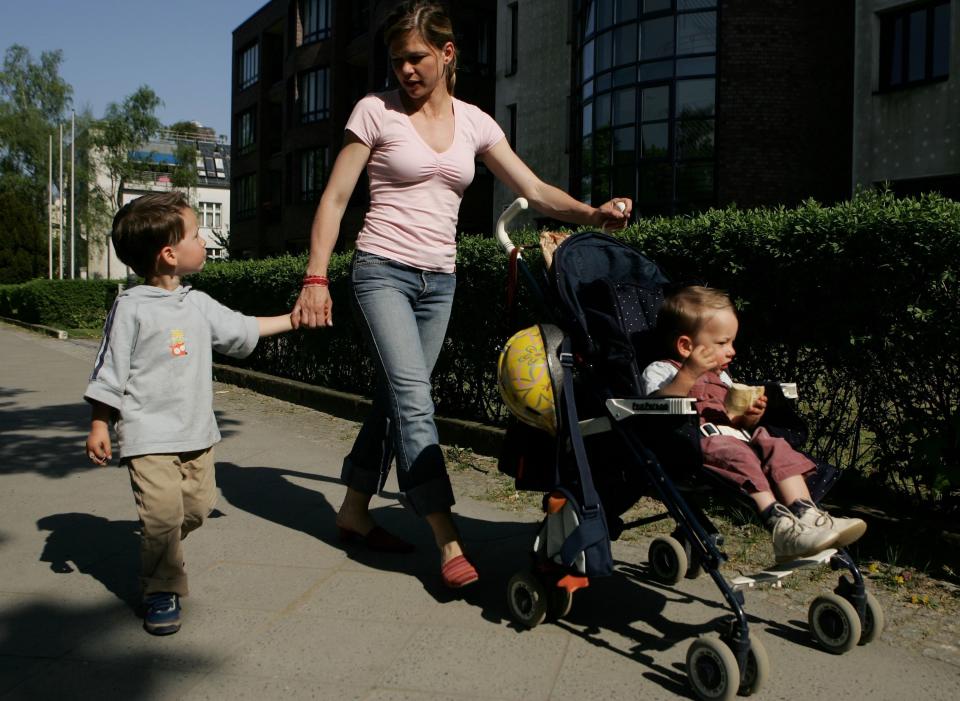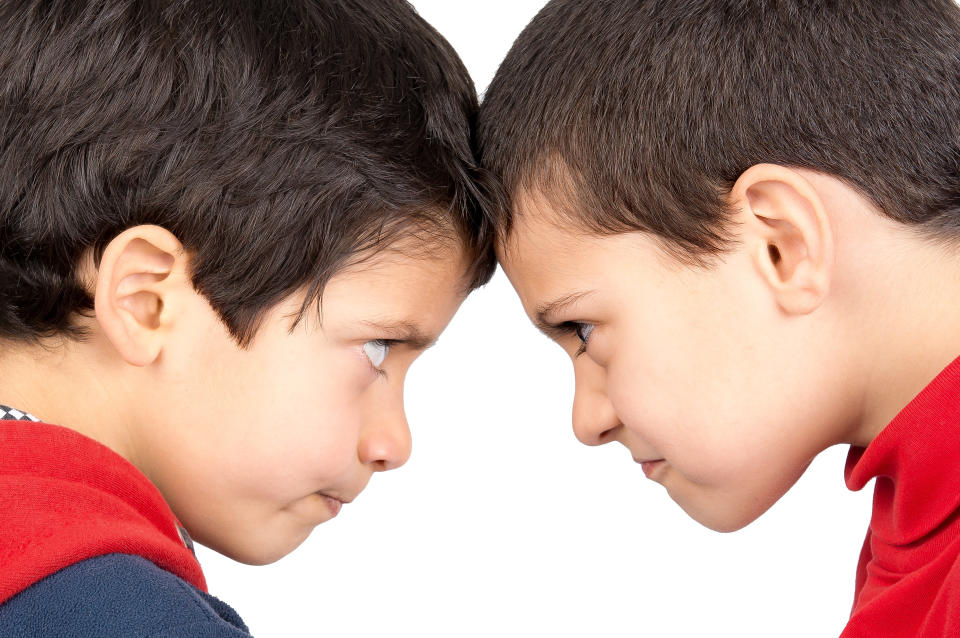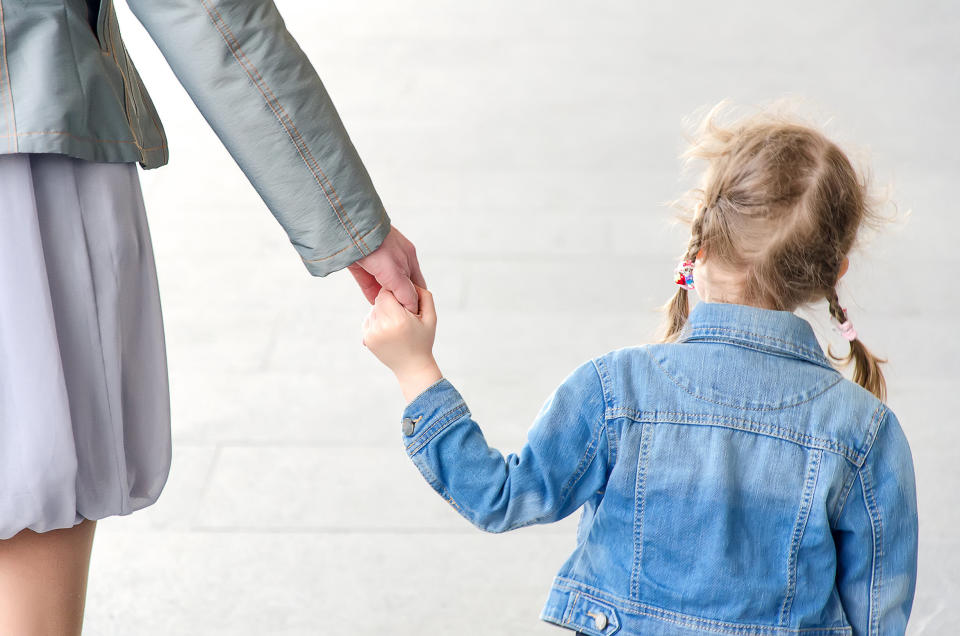Celebrities Send Messages Of Support To Bullied Tennessee Student
Actors, athletes, musicians and other big name celebrities are using Twitter to rally behind a Tennessee student after an emotional video showed the boy crying about being bullied.
Keaton Jones, a young boy from Knoxville, became an internet sensation after his mother shared a video of his heartbreaking story on Facebook. Keaton was sitting in the car with his mom because he was afraid to go to lunch, and described how the other kids were bullying him.
“They make fun of my nose. They call me ugly. They say I have no friends,” Keaton told his mother as he started to cry.
Keaton began his video by asking why people bully other kids, but ended with a message to other kids who have been bullied, to give them some hope. The video has been viewed more than 18 million times on his mother’s Facebook page.
“I don’t like that they do it to me. And I, for sure, don’t like that they do it to other people, cause it’s not okay!” Keaton told his mother. “People that are different don’t need to be criticized about it. It’s not their fault.”
Kimberly Jones, Keaton’s mother, wrote in her post that her son was a good kid and encouraged parents to talk to her children about bullying. Jones did not immediately respond to HuffPost’s request for comment.
The viral video caught the attention of some big names, who wanted to send love and support for Keaton. Actors Chris Evans, Millie Bobby Brown and Patricia Arquette are just a few of the celebrities who have reached out on Twitter to give Keaton some hope.
“Stay strong, Keaton. Don’t let them make you turn cold,” Evans tweeted Sunday. “I promise it gets better. While those punks at your school are deciding what kind of people they want to be in this world, how would you and your mom like to come to the Avengers premiere in LA next year?”
Keaton has received tons of invitations like Evans’ since the video has been out, including being invited as Hailee Steinfield’s date to the “Pitch Perfect 3” premiere. Tennessee Titans tight-end Delanie Walker invited Keaton and his family to a New Year’s Eve game against Jacksonville.
Stay strong, Keaton. Don’t let them make you turn cold. I promise it gets better. While those punks at your school are deciding what kind of people they want to be in this world, how would you and your mom like to come to the Avengers premiere in LA next year? https://t.co/s1QwCQ3toi
— Chris Evans (@ChrisEvans) December 10, 2017
Keaton, this is so accurate. Why do people do this? I think your sooo cool Keaton! I wanna be your friend ( but srsly) ur freakin awesome ❤️ https://t.co/LD7Q762bL9
— Millie Bobby Brown (@milliebbrown) December 9, 2017
Hi @Lakyn_Jones, could you pass this message along to Keaton? ❤ pic.twitter.com/3l8P4fKAqW
— Hailee Steinfeld (@HaileeSteinfeld) December 10, 2017
We hear you #KeatonJones. I was bullied constantly growing up. And could never have put into words what you have. It does get better. And it gets better because of who are and what you know and how you share it with all of us. Thank you for your courage. https://t.co/P4cCQtkAnB
— Patrick J Adams (@halfadams) December 9, 2017
Keaton, I'm sorry those kids are being so mean. Unless people like that change they will end up having unhappy lives. I think you're cool!
— Patricia Arquette (@PattyArquette) December 9, 2017
@DonteStallworth @Lakyn_Jones hopefully my video and the tweets that Keaton have been getting brings awareness to bullying and how serious it is in our school system pic.twitter.com/1Dujv3RxA5
— Delanie walker (@delaniewalker82) December 9, 2017
. I need Keaton Jones to appear on Chrisley Knows best , this Kid can change the world and I wanna help him do it .. #keatonbecomesachrisley let’s make this happen .. everyone use the hashtag .
— Todd Chrisley (@toddchrisley) December 10, 2017
Hey, #KeatonJones - you have friends here at the UFC, buddy. Today and everyday. #StandWithKeaton @Lakyn_Jones | @DC_MMA @TWooodley @FelderPaul @SugaRashadEvans @KennyFlorian pic.twitter.com/ZxX0cY1bu7
— UFC (@ufc) December 10, 2017
If someone can get to me the name of the school, the principal, school board members i will gladly make the calls myself and fix this. Also if anyone knows Keaton and his parents, i will gladly fly them to NYC to be my guest & visit Fox News. https://t.co/uFyp2r2Yn7
— Sean Hannity (@seanhannity) December 10, 2017
@Lakyn_Jones Hello, Keaton (via your sister)! You may have heard of my parents, Dr. Martin Luther King, Jr. (#MLK) and #CorettaScottKing. I try to honor them and their legacies. I’m so sorry about the pain you’re experiencing because of bullying. You matter. I love you.
— Be A King (@BerniceKing) December 9, 2017
Keaton you are a handsome young man who is made in the image God. The kids that bully you are very insecure about themselves. And it’s a shame that the parents of those kids won’t be accountable for their kids actions. Keaton Jones I’m here for you buddy. Be Strong young man
— ANTONIO CROMARTIE (@CRO31) December 10, 2017
@Lakyn_Jones For Keaton: You have friends in us here in Colorado. You’re always welcome at Coors Field and if you ever make it to Denver, please be our guest at a game. Keep your head up and always be yourself, don’t let those bullies win!
— Colorado Rockies (@Rockies) December 10, 2017
UPDATE ― Dec. 11: The principal of the Horace Maynard Middle School responded to concerns about bullying at the school on Monday. Principal Greg Clay told the Knoxville News Sentinel that “action was taken” by the school after the incident occurred, and the school is planning an anti-bullying assembly to address the issue.
“We’re having a good school year,” Clay said. “I’m sorry it’s like this. We all sympathize with Keaton and we’re doing everything we can to make sure it never happens again. Everybody saw the video and it was horrible. We don’t want anyone to feel like that. Keaton’s a good kid. We’ll take care of him.”
Facebook and Twitter users also have raised questions about the family’s political views and intentions in sharing the video.
Also on HuffPost
Love HuffPost? Become a founding member of HuffPost Plus today.
DO: Tell Them They Are Not Alone

DON'T: Suggest They "Just Ignore It"

DO: Check In Regularly

DON'T: Suggest Your Child Stand Up To The Bully

DO: Set Boundaries Online

DON'T: Express Disbelief

DO: Encourage Them To Speak Up

DO: Discourage Password Sharing

DON'T: Take Matters Entirely Into Your Own Hands

DO: Be Patient

DO: Find Resources Online

This article originally appeared on HuffPost.

 Yahoo Movies
Yahoo Movies 